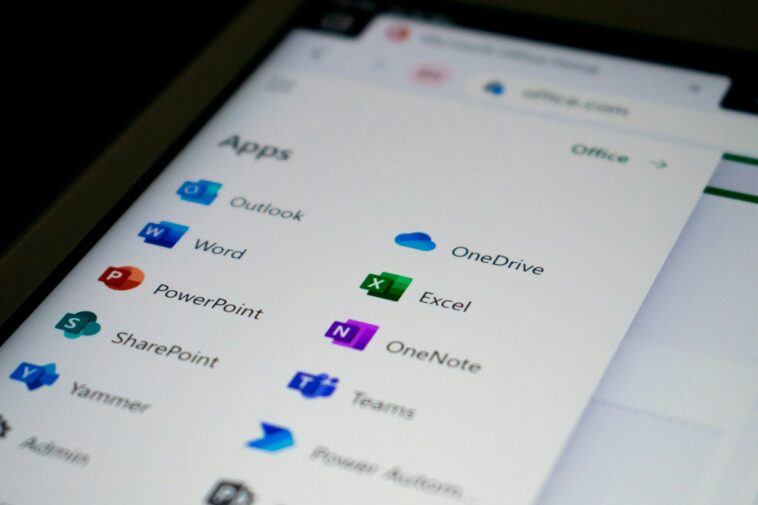If you’ve ever wondered whether AI might take your job—or someone else’s—this might be the moment to find out.
Microsoft recently shared some eye-opening research about which careers are more vulnerable to AI disruption, and which ones are considered relatively “AI-safe.”
And let me tell you: the findings are both fascinating and, for some, a bit unsettling.
As AI tools like ChatGPT, Copilot, and others become part of everyday work, they’re reshaping the way we do things—faster than most of us expected.
Whether you’re just starting your career, thinking about switching industries, or trying to figure out how to stay competitive, this matters. A lot.
Let’s unpack what Microsoft found, what it means for different kinds of jobs, and how you can future-proof your career in the age of AI.
What Does “AI-Safe” Actually Mean?
Before we dive into the jobs list, let’s get clear on what “AI-safe” even means.
An “AI-safe” job is less likely to be automated or significantly changed by AI. These are roles where human judgment, emotional intelligence, physical presence, or creativity play a major role—skills that current AI just can’t replicate well.
On the flip side, “AI-exposed” or “AI-vulnerable” jobs are those where AI can perform most of the core tasks—often faster, cheaper, and around the clock. That doesn’t necessarily mean those jobs will vanish overnight. But they will change. Sometimes drastically.
Microsoft’s Findings: The Safest and Riskiest Jobs in the Age of AI
Microsoft, along with LinkedIn (which it owns), analyzed job trends and AI capabilities to determine which roles are more or less impacted by AI. Their data was drawn from LinkedIn’s Economic Graph, covering millions of job postings and member profiles.
Here’s a snapshot of what they found:
Most “AI-Safe” Jobs
These roles are considered relatively secure, at least for now:
Nurses and Healthcare Workers: Human care, empathy, and physical presence aren’t things AI can fake.
Teachers (Especially Early Childhood and Special Ed): Teaching isn’t just about delivering information; it’s about connection and adaptability.
Skilled Trades (Electricians, Plumbers, Carpenters): You can’t fix a leaky pipe or rewire a house with a chatbot.
Mental Health Professionals: Empathy, trust, and nuance make these roles hard for machines to replace.
Creative Leaders (e.g. Art Directors, Brand Strategists): AI can assist, but original vision still requires a human.
Most “AI-Exposed” Jobs
These roles face higher risk of disruption:
Paralegals and Legal Assistants: AI can already sift through legal documents and summarize cases.
Customer Service Representatives: AI-powered chatbots are handling more support requests than ever.
Data Entry Clerks: Automating repetitive tasks is what AI excels at.
Report Writers and Analysts: Tools like ChatGPT can draft and analyze documents in minutes.
Graphic Designers (Especially Entry-Level): AI tools like Midjourney and DALL·E are creating stunning visuals in seconds.
Why It Matters: AI Isn’t Coming—It’s Already Here
The big takeaway? AI isn’t a distant threat. It’s already reshaping job descriptions, skill requirements, and career paths. Even for those in “safe” roles, it’s becoming more important to work alongside AI, not ignore it.
Microsoft’s data shows that job listings mentioning AI-related skills are growing faster than those that don’t. In other words, even if your job is safe from replacement, it may not be safe from change.
What Can You Do About It?
Whether your job is on the “safe” list or not, the key is staying adaptable and building the kind of skills that AI can’t easily replicate.
Here’s how I’d approach it:
1. Learn How to Use AI—Now
Even if your role isn’t technical, learning tools like Microsoft Copilot, ChatGPT, or Notion AI can give you a serious productivity edge. You don’t have to become a developer, but you do need to know what AI can (and can’t) do.
Helpful resource: LinkedIn Learning’s AI Courses
2. Double Down on Human Skills
Empathy, creativity, problem-solving, adaptability—these are the traits that AI still struggles with. The more your job relies on these, the safer (and more valuable) you are.
3. Reframe Your Career Like a Product
If AI is the competition, what’s your unique value? What can only you bring to the table? Think of yourself as a product you’re constantly improving—skills, knowledge, and personal brand included.
4. Stay Curious, Not Paralyzed
It’s easy to feel overwhelmed by all the change. I’ve definitely had moments of “What even is my job going to look like in 5 years?” But curiosity beats fear. Keep asking questions. Keep learning.
Frequently Asked Questions
Is AI really going to take over jobs, or is this just hype?
AI is already transforming jobs, especially in admin, legal, and creative fields. But it’s more about change than complete replacement. Jobs will evolve, not just disappear.
Can I make my current job more AI-safe?
Yes. You can lean into the parts of your role that require strategy, communication, leadership, or judgment—and start using AI as a tool, not a threat.
What industries are the most future-proof?
Healthcare, education, skilled trades, and human-centered services are generally considered more resilient. But even within those, adapting to tech is still crucial.
Is coding the only way to stay relevant in the AI era?
Nope. Understanding how AI works helps—but you don’t need to be a programmer. Focus on integrating AI into your work, not building it from scratch.
Final Thoughts
Microsoft’s report is a wake-up call—but it’s also an opportunity.
AI is changing the rules. Some jobs are more exposed than others, sure. But the real edge comes from staying curious, flexible, and human in a world where machines are getting smarter by the day.
So—where do you rank? And more importantly, what are you doing to stay ahead?
Let me know your thoughts or share how AI is already affecting your work. I’d love to hear from you.





GIPHY App Key not set. Please check settings